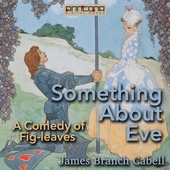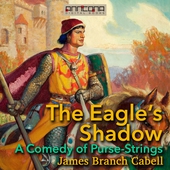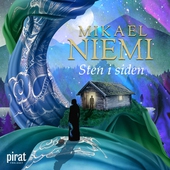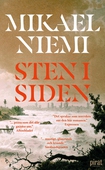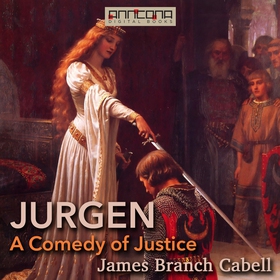
Lägg till önskelistan
Gratis smakprov
- Spara till biblioteket
- Lyssna på smakprov
Jurgen, A Comedy of Justice ljudbok
Pris
65 kr
Jurgen, A Comedy of Justice is a fantasy novel by James Branch Cabell, which gained fame (or notoriety) shortly after its publication in 1919.
Jurgen is a humorous romp through a medieval cosmos, including a send-up of Arthurian legend, and excursions to Heaven and Hell as in The Divine Comedy. Cabell's work is recognized as a landmark in the creation of the comic fantasy novel, influencing Terry Pratchett and many others.
The eponymous hero, who considers himself a "monstrous clever fello...
Ljudbok
65 kr
Pris
Förlag
Anncona Media
Utgiven
20 Januari 2024
Längd
9:56
Genrer
Science Fiction, Romaner, Science Fiction & Fantasy, Skönlitteratur
Språk
English
Format
mp3
Kopieringsskydd
Vattenmärkt
ISBN
9789177597513
Jurgen, A Comedy of Justice is a fantasy novel by James Branch Cabell, which gained fame (or notoriety) shortly after its publication in 1919.
Jurgen is a humorous romp through a medieval cosmos, including a send-up of Arthurian legend, and excursions to Heaven and Hell as in The Divine Comedy. Cabell's work is recognized as a landmark in the creation of the comic fantasy novel, influencing Terry Pratchett and many others.
The eponymous hero, who considers himself a "monstrous clever fellow," embarks on a journey through ever more fantastic realms in search of a parodized version of courtly love. Everywhere he goes he meets eccentric knights and damsels, in an acerbic satire of contemporary America. Jurgen gains the attention of the Lady of the Lake, Queen Guinevere, Anaitis, Helen of Troy, Chloris, and even the Devil's wife. His wanderings take him from Poictesme to Glathion, Cocaigne, Leuke, Hell, and Heaven.
Jurgen, A Comedy of Justice was first published in 1919. Audiobook read by Mark Nelson, running time 9hours, 57 min. Unabridged full version.
James Branch Cabell (1879 - 1958) was an American author of fantasy fiction and belles lettres. Cabell was well-regarded by his contemporaries, including H. L. Mencken, Edmund Wilson, and Sinclair Lewis. Although escapist, Cabell's works are ironic and satirical. Mencken disputed Cabell's claim to romanticism and characterized him as "really the most acidulous of all the anti-romantics. His gaudy heroes ... chase dragons precisely as stockbrockers play golf."

